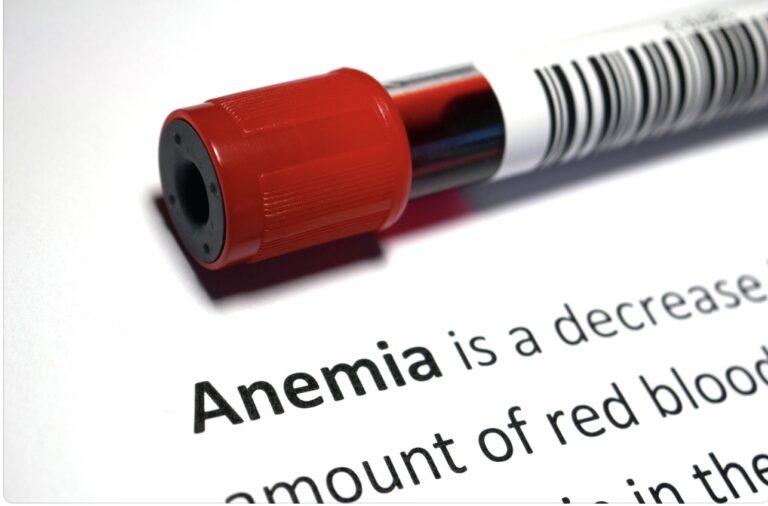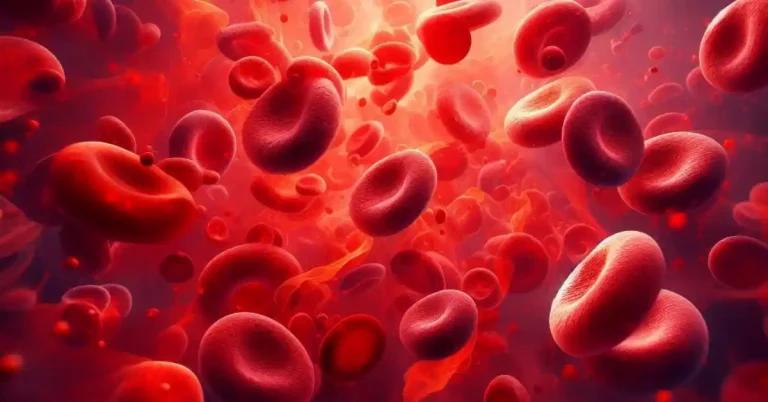
Anaemia is a blood disorder that affects millions of people worldwide, marked by a deficiency in healthy red blood cells or hemoglobin. Fewer red blood cells can lead to a range of symptoms, including tiredness, lightheadedness, pale skin and shortness of breath. Effectively managing anaemia is crucial, as it can prevent serious complications like heart problems, infections, and developmental delays in children if left untreated.
In this coverage, we’ll explore management strategies ranging from dietary supplements and medications to specialised procedures.
Understanding the causes of iron deficiency
Anaemia can stem from a variety of underlying factors. The most common type is iron-deficiency anemia, when the body doesn’t produce enough iron. The most common causes are:
- An inadequate amount of iron in the diet
- Blood loss from an injury, heavy periods, or bleeding inside the intestines
Other forms, such as vitamin B12 or folate deficiency anaemias, can also develop due to malabsorption or dietary imbalances.
Certain chronic conditions, including Crohn’s disease, cancer, pica syndrome and kidney disease, can also contribute to the onset of anaemia. Additionally, inherited genetic disorders like sickle cell anemia and thalassemia can directly impact the body’s ability to produce healthy red blood cells.
Recognising the specific cause of your anaemia is crucial, as it will guide the treatment approach. Your healthcare provider will perform a comprehensive evaluation, including blood tests and potentially additional diagnostic procedures, to determine the underlying causes and develop a personalised management plan.
Dietary strategies
One of the first lines of defence against anaemia is ensuring a nutrient-rich diet that addresses the root cause of the condition. For individuals with iron-deficiency anemia, incorporating iron-rich foods, such as red meat, poultry, seafood, and fortified grains, can help replenish depleted stores.
Vegetarians and vegans, who may have lower iron absorption from plant-based sources, can optimise their intake by pairing iron-rich foods with vitamin C-rich items, as the latter enhances the body’s ability to utilise iron. Leafy greens, citrus fruits, and bell peppers are excellent examples of vitamin C-rich foods that can boost iron absorption.
For those with vitamin B12 or folate deficiency anaemias, dietary modifications may involve increased consumption of animal-based products, such as eggs, dairy, and organ meats, or fortified cereals and leafy green vegetables.
In addition to adjusting food choices, maintaining proper hydration and regular physical activity can also support the body’s ability to produce and utilise red blood cells effectively.
Supplementation
While a balanced diet is a foundation for managing anaemia, in some cases, dietary changes alone may not be sufficient. Your healthcare provider may recommend supplementation to address specific nutrient deficiencies and accelerate the recovery process.
Iron supplements
Iron supplements are a common prescription for individuals with iron-deficiency anemia. These can come in various forms, including ferrous sulfate, ferrous fumarate, or ferrous gluconate. The recommended dosage is typically between 150-200 mg of elemental iron per day, though your provider may adjust the amount based on the severity of your condition and individual factors.
It’s important to note that while over-the-counter multivitamins may contain some iron, the amount is often insufficient to treat anaemia effectively. Prescription-strength iron supplements are generally more potent and better absorbed by the body.
Vitamin B12 and folate supplements
For individuals with low levels of vitamin B12 or folate, supplementation can be highly beneficial. Vitamin B12 supplements, often in the form of cyanocobalamin or methylcobalamin, can help restore optimal levels and support red blood cell production.
Similarly, folate (vitamin B9) supplements, such as folic acid, can address deficiencies and aid in the formation of healthy red blood cells. Your healthcare provider will determine the appropriate dosage based on your specific needs.
It’s vital to follow the recommended dosage and timing instructions for any supplements, as excessive intake can lead to adverse effects. Additionally, be mindful of potential interactions with other medications or underlying health conditions.
Intravenous (IV) iron therapy
In some cases, oral iron supplements may not be sufficient or well-tolerated, particularly in individuals with severe anaemia or those with conditions that impair intestinal absorption. In such instances, your healthcare provider may recommend intravenous (IV) iron therapy.
IV iron infusions bypass the gastrointestinal tract, allowing for more efficient and rapid replenishment of iron stores. This approach is often used in patients with chronic blood loss, those undergoing certain medical treatments, or individuals who have had bariatric surgery.
The IV iron formulations commonly used include iron dextran, iron sucrose, and ferric gluconate. These preparations are administered through a series of infusions, typically over several weeks or months, until the desired iron levels are achieved.
While generally safe, IV iron therapy does carry a small risk of allergic reactions or other side effects. Your healthcare provider will monitor you closely during the infusion process and may perform a test dose before the initial infusion to assess your tolerance.
Blood transfusions: A temporary solution
In cases of severe, life-threatening anaemia, where the body is unable to produce sufficient red blood cells or is experiencing rapid blood loss, blood transfusions may be necessary as a temporary measure.
During a blood transfusion, healthy donor blood is administered directly into the patient’s bloodstream through an intravenous (IV) line. This procedure can quickly increase the number of red blood cells and improve oxygen delivery throughout the body, providing relief from the debilitating symptoms of anaemia.
Blood transfusions are typically reserved for individuals with acute, severe anaemia, such as those experiencing active bleeding, significant trauma, or certain medical conditions that have led to a sudden and dramatic drop in red blood cell levels.
It’s important to note that while blood transfusions can offer immediate relief, they do not address the underlying cause of the anaemia. Ongoing treatment and management, such as dietary changes, supplementation, or targeted therapies, are still necessary to address the root problem and prevent future complications.
Bone marrow transplants: A curative approach
For individuals with certain inherited forms of anemia, such as aplastic anemia or certain types of leukaemia, a bone marrow transplant may be the only treatment option.
This procedure involves replacing the faulty or damaged blood-forming stem cells with healthy ones. This is typically done by infusing stem cells from a suitable donor, which can be a close family member or an unrelated individual registered with a national donor program.
The transplant process involves several steps, including:
- Preparatory conditioning: The patient undergoes chemotherapy and/or radiation therapy to destroy their abnormal stem cells and weaken the immune system, making it more receptive to the donor cells
- Stem cell collection: The donor’s stem cells are collected, either from the bone marrow or the bloodstream, through a process called apheresis
- Transplantation: The donor stem cells are then infused into the patient’s bloodstream, where they travel to the bone marrow and produce healthy new blood cells
Recovery from a bone marrow transplant can be a lengthy and complex process. It offers a solution for certain types of anemia, but is typically reserved for patients with severe, life-threatening forms of the condition that have not responded to other treatments.
Anaemia in Pregnancy
Anaemia is a common concern during pregnancy, with iron-deficiency anemia being the most common type. Pregnant women have an increased need for iron and other essential nutrients to support the growth and development of the fetus, as well as the expansion of the mother’s blood volume.
To manage anaemia in pregnancy, healthcare providers often recommend a combination of dietary modifications and supplementation. This may include:
- Increasing intake of iron-rich foods, such as red meat, poultry, seafood, and fortified cereals
- Taking prenatal vitamins or iron supplements as prescribed
- Ensuring adequate consumption of vitamin C-rich foods to enhance iron absorption
Lifestyle modifications
While medical treatments are often necessary to treat the underlying causes of anemia, making lifestyle changes can also significantly help manage the condition and prevent its recurrence.
Dietary changes
As discussed earlier, a nutrient-rich diet that addresses the specific nutritional deficiencies associated with anaemia is essential. This may involve increasing the consumption of foods with good sources of iron, ensuring adequate intake of vitamins B12 and folate, and pairing iron-containing items with vitamin C-rich foods such as orange juice to enhance absorption.
Hydration and exercise
Maintaining proper hydration and engaging in regular physical activity can also support the body’s ability to produce and utilise red blood cells effectively. Staying well-hydrated helps facilitate the transport of oxygen and nutrients, while moderate exercise can stimulate the production of new red blood cells.
Things to avoid
Certain substances, such as coffee, tea, and calcium supplements, can interfere with the body’s absorption of iron. Avoiding or limiting the consumption of these substances, particularly around mealtimes, can help optimise the effects of iron-rich foods and supplements.
Managing underlying conditions
For individuals with anaemia caused by chronic medical conditions, such as autoimmune disorders or kidney disease, managing the underlying condition is crucial. Adhering to prescribed treatments, medications, and lifestyle recommendations can help control the cause and prevent or reduce the development of anaemia.
By incorporating lifestyle modifications alongside medical interventions, individuals with anaemia can work towards restoring their red blood cell levels, reducing symptoms, and the risk of long-term complications.
Monitoring
Effective management of anaemia requires ongoing monitoring and follow-up care. Your healthcare provider will regularly take blood tests and test your levels of hemoglobin, hematocrit, and ferritin to ensure that your treatment plan is effective and to make any necessary adjustments.
Consistent monitoring and adherence to the prescribed treatment plan are vital for achieving and maintaining optimal red blood cell levels, managing symptoms, and preventing long-term complications.
Conclusion
Anaemia is a complex condition, but by understanding the underlying causes, exploring the various treatment options, and incorporating lifestyle modifications, individuals with anaemia can take an active role in their own care and work towards restoring their overall health and well-being.
Sources
- Anemia – Mayo Clinic
- Anemia – Cleveland Clinic
- Anemia treatment – NIH
- Anemia iron deficiency – Hematology
Medical Disclaimer
NowPatient has taken all reasonable steps to ensure that all material is factually accurate, complete, and current. However, the knowledge and experience of a qualified healthcare professional should always be sought after instead of using the information on this page. Before taking any drug, you should always speak to your doctor or another qualified healthcare provider.
The information provided here about medications is subject to change and is not meant to include all uses, precautions, warnings, directions, drug interactions, allergic reactions, or negative effects. The absence of warnings or other information for a particular medication does not imply that the medication or medication combination is appropriate for all patients or for all possible purposes.








